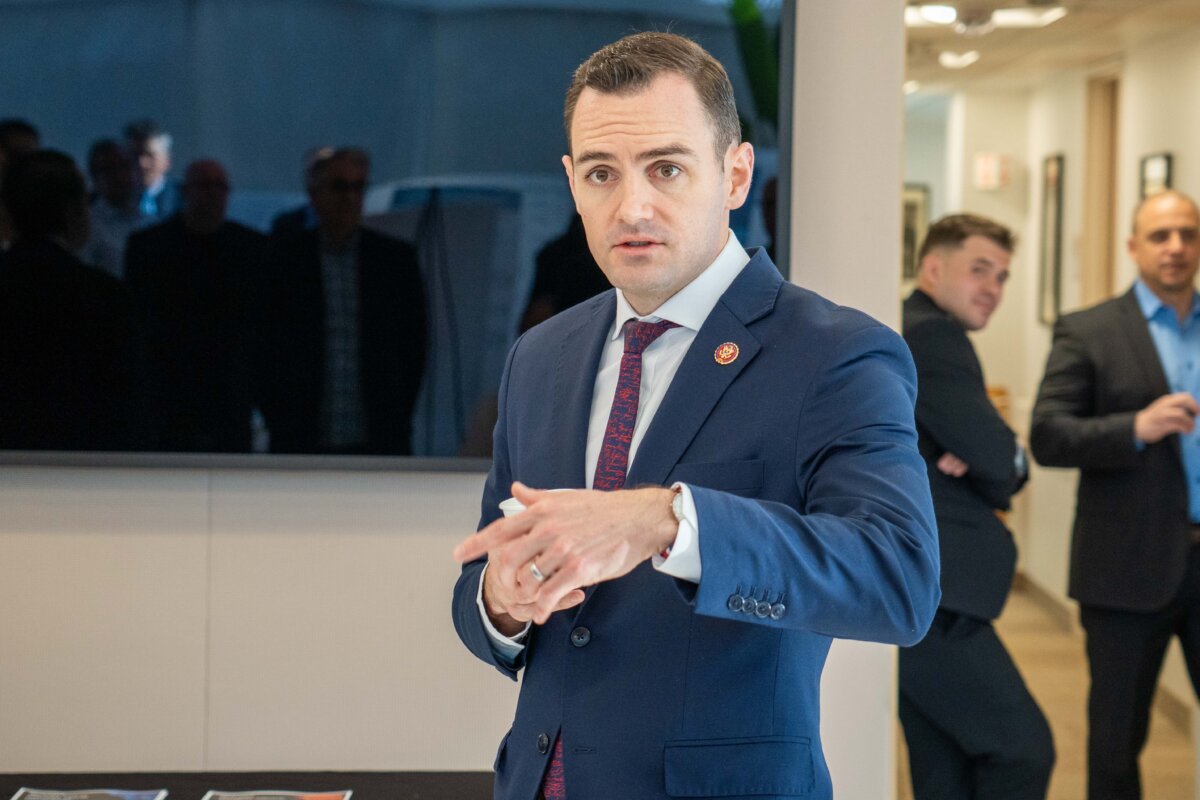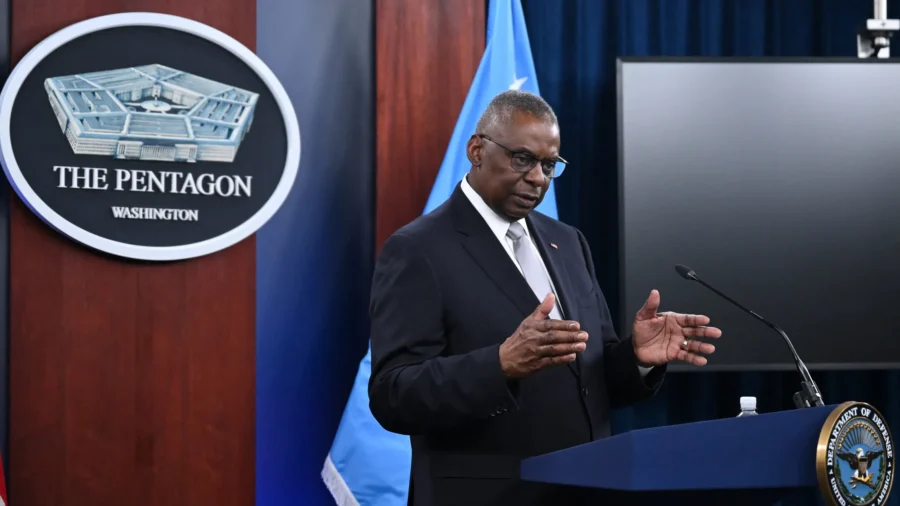A U.S. Department of Defense (DOD) review released on Feb. 26 found that Defense Secretary Lloyd Austin had no “ill intent” when staff kept his hospitalization several weeks ago a secret.
After he was hospitalized, some in Congress asked why they were not immediately notified of the defense secretary’s condition. Mr. Austin is now scheduled to testify in the House this week.
The Pentagon report said that the decision-making process to transfer the defense secretary’s authority to his deputy should be improved in the future. However, it stated that “nothing examined during this review demonstrated any indication of ill intent or an attempt to obfuscate.”
Earlier this month, Mr. Austin told reporters at a press conference that he didn’t tell his staff to keep his health problems and hospitalizations a secret. Instead, he said, “We fell short on this one.”
Meanwhile, the issues with notifications to the White House and Congress were due to privacy laws that prevented the “candid sharing of medical information,” according to the report. Other issues included Mr. Austin’s desire for privacy to make staff “hesitant to pry or share any information that they did learn” and that his stay in a hospital’s intensive care unit prevented communication.
After his hospital stay was reported, the Pentagon revealed he had surgery on Dec. 22 for prostate cancer and left the hospital on the following day. But he returned to Walter Reed National Military Center near Washington on Jan. 1 and didn’t inform the White House for several days. He also did not inform Deputy Secretary of Defense Kathleen Hicks.
He was released more than a week later. About a month later, Mr. Austin was re-admitted to Walter Reed because of a bladder-related issue that stemmed from his surgery in December of last year, and he was released in mid-February, according to officials.
In a statement, Mr. Austin said that his prostate cancer diagnosis “shook” him. “I know it shakes so many others … it was a gut punch,” he said.
“Frankly, my first instinct was to keep it private. I don’t think it’s news that I’m a pretty private guy. I never liked burdening others with my problems. It is just not my way. But I’ve learned from this experience. Taking this kind of job means losing some of the privacy that most of us expect,” he said in a news conference in early February. “The American people have a right to know if their leaders are facing health challenges that might affect their ability to perform their duties even temporarily.”
Asked about the matter earlier in January, President Joe Biden said it was a lapse in judgment for Mr. Austin not to tell him about his hospitalization, but he said he still has confidence in his Pentagon chief. The defense secretary, who worked from home for two weeks after his release from the hospital, returned to work in the Pentagon in late January. He had not been in the building since Dec. 21.
A spokesman for the Pentagon, Maj. Gen. Patrick Ryder, has told reporters that Mr. Austin is not planning to step down and that none of his staff will either.
Mr. Austin’s lack of disclosure prompted changes in federal guidelines and triggered an internal Pentagon review and an inspector general review of his department’s notification procedures. Both reviews are ongoing, and members of Congress have called for hearings on the matter.
In early January, Rep. Mike Gallagher (R-Wis.), chair of the China Select Committee, said in a statement that “at a time when U.S. troops are actively under attack and some dying in the Middle East, neither the President, National Security Council, nor Congress knew who was—or was not—at the helm of the Pentagon.”

“This is irresponsible and brings into question the basic competence of the Biden administration,” he said. “The American people have a right to know why the commander-in-chief was not made aware of the secretary of defense’s incapacitation.”
At the same time, Senate Armed Services Committee Chair Jack Reed (D-R.I.) said that he was concerned that chain-of-command and notification rules had not been followed during the incident.
“He is taking responsibility for the situation, but this was a serious incident, and there needs to be transparency and accountability from the Department,” Mr. Reed said in a statement.
The Pentagon chief will appear before the House Armed Services Committee on Feb. 29.
The Associated Press contributed to this report.
From The Epoch Times

